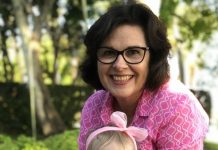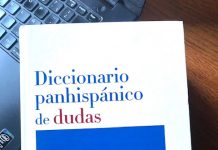Most industries have mechanisms through which consumer feedback, positive or negative, can be gathered — but not higher education. In fact, while postsecondary education data is plentiful, the consumer perspective is surprisingly absent — and yet it should be an important voice in shaping the future of postsecondary education.
The Education Consumer Pulse (ECP) by Gallup and Strada Education Network, formerly USA Funds, seeks to change that by creating the most extensive set of education consumer insights to date. Since June 2016, Gallup has interviewed 350 U.S. adults daily, with more than 122,500 interviews annually, asking them a range of questions about their education experiences. The survey includes a representative sample of U.S. adults aged 18-65 currently living in the 50 states and the District of Columbia.
On June 1, Gallup and Strada Education will release the first of a series of reports based on the findings. These explorations will inform the ongoing debate surrounding the most pressing issues facing postsecondary learning today and will comprise the most extensive set of education consumer insights to date.
This innovative research into the experiences and perspectives of education consumers ensures sophisticated findings from a representative sample of Americans aged 18 to 65, whether they finished high school or not. Regardless of attainment level, respondents are asked in-depth questions about the factors that influenced their educational path. They are also asked to share insights about how their education has shaped their employment outlook and career.
The new Gallup-Strada Education partnership, born of a commitment to elevate the voice of the education consumer, will provide new insights about how many Americans successfully pursue and complete postsecondary education that leads to rewarding careers and fulfilling lives.
The inaugural report, On Second Thought: U.S. Adults Reflect on Their Education Decisions, will explore American higher education consumers’ assessments of their own higher education paths.
Their responses make clear that about half of Americans have reflected with regret on various aspects of their education paths: Some would choose a different major or school, while some would have sought an entirely different degree. Such decisions — often made without information about one’s options or what is needed to pursue a chosen career path — have longstanding implications for Americans’ careers, finances and well-being. These perspectives help to inform postsecondary leaders, policymakers, educators, employers and other education consumers, and shed light on major issues facing postsecondary education in the U.S. Through the Education Consumer Pulse, Gallup and Strada Education will continue to explore more education consumer insights on other topics.
Stay tuned for future reports on subjects including:
- where U.S. students seek advice on postsecondary education choices
- how vocational, technical and associate degree holders perceive their education
- what those who started college, but didn’t finish, think about their postsecondary education experiences
- what veterans experience as they navigate postsecondary education and civilian careers
Sign up to receive On Second Thought: U.S. Adults Reflect on Their Education Decisions and future reports at stradaeducation.gallup.com.
SURVEY METHODS
Results for the Education Consumer Pulse are based on telephone surveys conducted June 29, 2016-March 26, 2017, with a random sample of 89,492 respondents aged 18 and older, living in all 50 U.S. states and the District of Columbia.
You can see Working after Retirement: Is it really worth it?
The Education Consumer Pulse sample includes national adults with a minimum quota of 70% cellphone respondents and 30% landline respondents, with additional minimum quotas by time zone within region. Landline and cellular telephone numbers are selected using RDD methods. Landline respondents are chosen at random within each household on the basis of which member will have the next birthday.
Interviews are conducted in English and Spanish. Samples are weighted to correct for unequal selection probability and nonresponse. The data are weighted to match national demographics of gender, age, race, Hispanic ethnicity, education and region. Demographic weighting targets are based on the most recent Current Population Survey figures for the population aged 18-65 years with a U.S. bachelor’s degree or higher level of education.
Published in Gallup and Strada Education Network
Sourse: Edición 33 Aldea Magazine


















